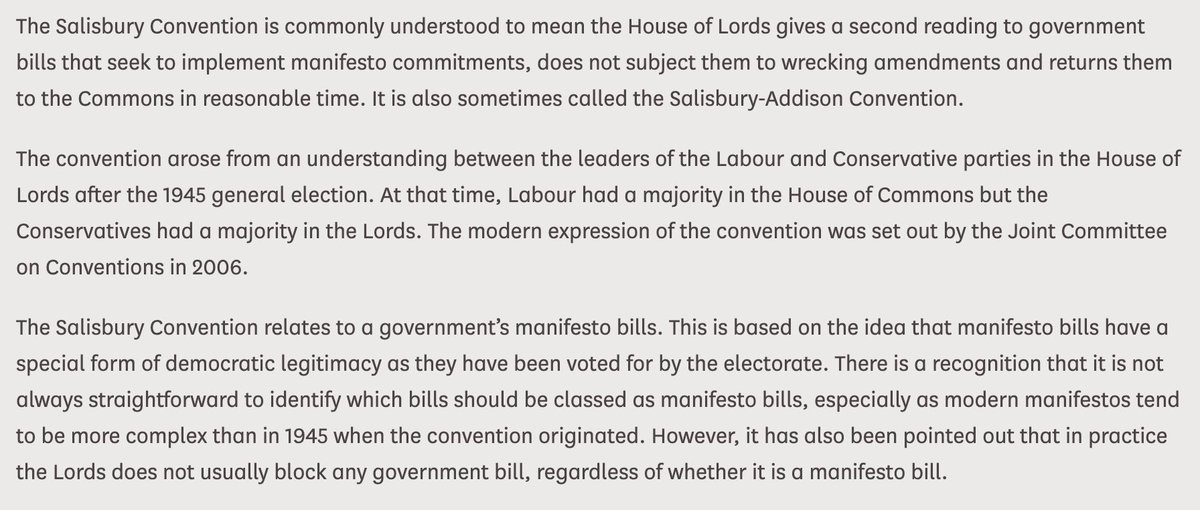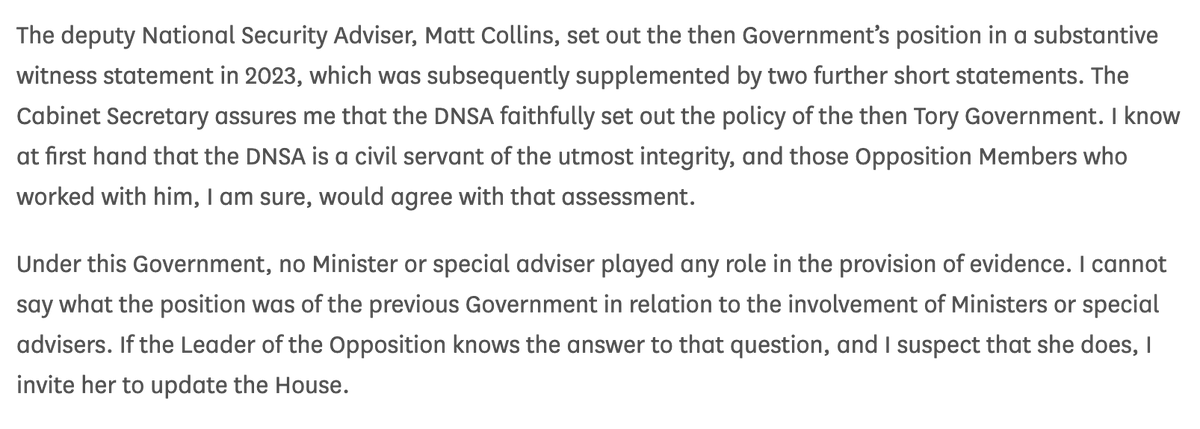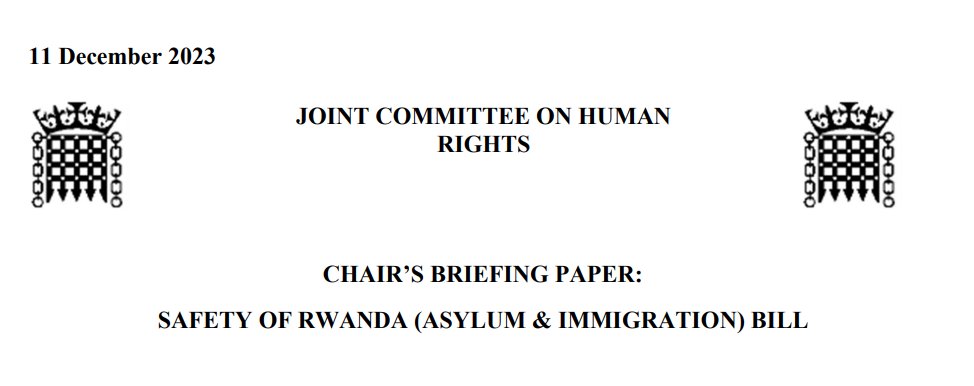This preposterous.
A short thread on why — and what the fact that the Government is advancing this argument might tell us. /…
A short thread on why — and what the fact that the Government is advancing this argument might tell us. /…
https://twitter.com/andrewsparrow/status/1305857243502596097
The Salisbury convention can only conceivably bite on Bills that *give effect to* the governing party’s manifesto commitments, as distinct from Bills that *renege* on such commitments. /… lordslibrary.parliament.uk/research-brief… 

There was a clear commitment in the Conservatives’ 2019 manifesto to ‘get Brexit done’ by implementing the Prime Minister’s ‘great new deal’ as set out in the Withdrawal Agreement & the Northern Ireland Protocol. /… assets-global.website-files.com/5da42e2cae7ebd… 



The Government’s view appears to be that other promises about NI access to the GB market trumps this promise about implementing the Withdrawal Agreement. /… 

In other words, they seem to be claiming that the manifesto contains contradictory promises and that legislation implementing one of them but breaching the other engages the Salisbury convention. /…
But that’s highly unconvincing — not least because the manifesto commitment to implement (and so to legislate to give effect to) the Withdrawal Agreement was the flagship policy on which the election campaign was fought. It is *literally* on the cover of the manifesto. /…
It follows, in my view, that the democratic basis of the Salisbury convention isn’t engaged by the current issue and that the convention thus supplies no basis for arguing that the House of Lords is obliged to approve the Internal Market Bill as presently drafted. /…
In its briefing paper on Salisbury, the House of Lords Library rightly says that the convention bites on manifesto bills because they have ‘a special form of democratic legitimacy’. A Bill *undermining* a central manifesto promise does not fall into that category. /…
The mere fact that the Government is arguing that the Salisbury convention applies is revealing. It is is consistent with the narrative I refer to in this piece, whereby constitutional counterbalances to the Executive are resisted or delegitimised. /… publiclawforeveryone.com/2020/09/13/the…
The House of Lords (whatever its shortcomings) is a significant counterweight to the Executive-dominated House of Commons and has often acted, entirely properly, as a guardian of fundamental constitutional principle. /…
It would be entirely proper for the Lords to act in such a way on this occasion — by refusing to approve legislation that authorises Ministers to breach international legal obligations and that attempts to shield such Government action from judicial scrutiny. /ends
• • •
Missing some Tweet in this thread? You can try to
force a refresh
















